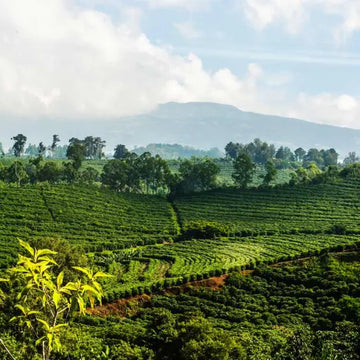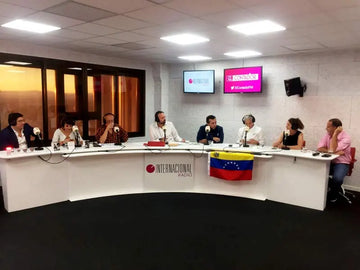More and more consumers are hearing the term “specialty coffee.” While it’s nothing new for those working in the industry, many people don’t fully understand what it means. Is it an exclusive coffee? Why is it more expensive? How is it different from commercial coffee? To define specialty coffee, we need to look at it from several angles.
Special from its cultivation
Coffee growers have two paths: aim for quantity or target markets dedicated to high quality. If they choose the latter, they’ll invest more care and money in practices such as cultivation, replanting, fertilization, and more, all with the goal of obtaining a better coffee.
What do they aim for? For example, that the fruit concentrates more sugars, that the plant is well-nourished, that there are fewer defective cherries, and that only ripe cherries are harvested… all of this ensures a higher quality flavor in the coffee.
Many specialty coffees are also valued because they come from uncommon Arabica varieties. You’ve probably heard of Geisha coffee, an Arabica plant that requires special care but produces an extraordinary cup: an intense floral and bergamot aroma with flavors of exotic fruits.
Special in its processing and roasting
Once harvested, coffee undergoes processing, also known as “beneficio.” Beneficios are facilities where machines separate the cherries from debris, extract the beans, wash them, and then dry them.
Every step of processing is critical for specialty coffee: if the best cherries aren’t selected, if defective beans aren’t removed, if fermentation is overdone or drying is mishandled, each of these will affect the flavor quality.
In Costa Rica, where Fudi & Co coffee comes from, washed processing (with water) is used, and specialty coffee is traced and handled separately. Costa Rican producers have innovated by introducing different methods:
-
Washed (traditional): where all the fruit’s mucilage is removed.
-
Honey: where varying degrees of mucilage are left on the bean.
-
Natural: where the bean isn’t removed from the cherry, but dried whole.
-
Anaerobic: where beans are fermented in sealed containers with water, without air contact.
Drying is another stage that distinguishes commercial coffee from specialty. Producers of specialty coffee always seek to highlight the best of its flavor:
-
Drying on African or raised beds.
-
Patio and sun drying (the most traditional in Costa Rica).
-
Mechanical drying in “guardiolas” (drying ovens).
The goal is to reduce moisture to between 10% and 12%. Excess moisture creates a moldy flavor, a serious defect in coffee.
After drying, green coffee is classified by density and size. High-quality beans have good density, proper size, and no broken or defective beans that could ruin all the previous effort during roasting.
And then comes roasting. In Spain and many other countries, specialty coffee challenges the old notion of dark roasts with burnt, ashy flavors, replacing them with medium roasts—free of additives like sugar or flavorings, which good coffee doesn’t need. (Additives are often used to mask the defects of low-quality coffee.)
Roasting can either unlock the very best in coffee or ruin all the hard work. Thanks to specialty coffee, the number of roasters is growing—people and companies who study the characteristics of their beans and roast them so we can experience all their flavor: the notes and fragrances hidden in each small bean.
A specialty coffee has its score
So how is the quality of all this effort ultimately defined? This is where cuppers come in. These professionals evaluate coffee to identify both defects and virtues, and then assign a score.
When a cupper examines a coffee, they first study a green (unroasted) sample to check for defects. They also analyze it roasted, and then cup it: assessing acidity, flavor notes, complexity, body, fragrance, aroma…
And this is not arbitrary. Only certified Q Graders can give valid scores, after passing rigorous testing. Q Graders evaluate Arabica coffee, using the standardized system established by the Specialty Coffee Association—similar to how wines are scored.
What score defines a specialty coffee? In the coffee market, any coffee scoring above 80 points qualifies as specialty. That’s the coffee we should all be drinking.
Below that threshold are commercial coffees of lower quality (less flavor complexity, more bean and cup defects). Above 85–86 points are even more exclusive coffees, such as those that win top places in auctions like the Cup of Excellence, or even Presidential Awards—coffees that score 90 points or more.
Naturally, the higher the score, the rarer the coffee. Lower-scoring coffees are more abundant. That’s why, and because of all the effort invested in the process, specialty coffees command a higher price.





